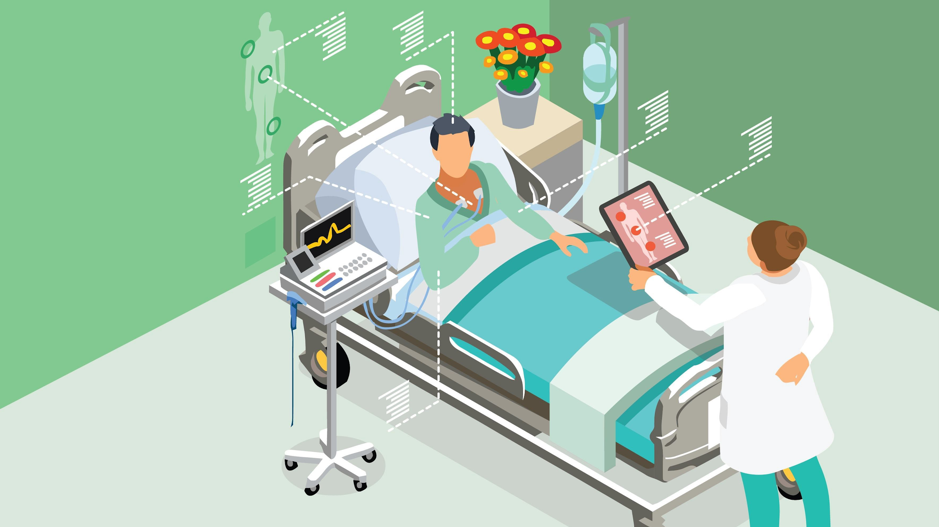
THE FUTURE OF INTENSIVE CARE UNITS (ICUS): PIONEERING INNOVATIONS TRANSFORMING HEALTHCARE
In recent years, the landscape of healthcare has been undergoing a remarkable transformation, with groundbreaking advancements reshaping the way we approach critical care. The future of Intensive Care Units (ICUs) holds promise for improved patient outcomes, enhanced efficiency, and a more personalized approach to healthcare.
1. Artificial Intelligence (AI) in ICUs:
One of the most significant trends shaping the future of ICUs is the integration of artificial intelligence. AI is revolutionizing patient care by providing real-time data analysis, predicting complications, and assisting healthcare professionals in making informed decisions. Smart monitoring systems powered by AI algorithms can detect subtle changes in a patient's condition, enabling proactive interventions and ultimately saving lives.
2. Telemedicine and Remote Monitoring:
The concept of ICUs is expanding beyond the physical confines of hospital walls. Telemedicine and remote monitoring technologies are playing a pivotal role in connecting healthcare professionals with patients in real-time, allowing for continuous observation and care even from a distance. This not only improves accessibility to critical care but also enables early intervention, reducing the risk of complications.

3. Wearable Technology for Patient Monitoring:
Advancements in wearable technology are empowering patients to actively participate in their healthcare. Wearable devices equipped with sensors can monitor vital signs, track medication adherence, and provide valuable data to healthcare providers. This shift towards patient-centric care fosters a more collaborative and holistic approach to managing health conditions, both within and beyond the ICU setting.
4. Precision Medicine Tailored for Critical Care:
The future of ICUs envisions a move towards precision medicine, where treatment plans are customized based on an individual's genetic makeup, lifestyle, and specific health needs. This targeted approach aims to optimize therapeutic outcomes, minimize adverse effects, and enhance overall patient recovery. Precision medicine holds the potential to revolutionize how we tackle complex and critical medical conditions in the ICU.
5. Enhanced Data Security and Privacy Measures:
As technology becomes increasingly integrated into healthcare, ensuring the security and privacy of patient data is of paramount importance. The future of ICUs includes robust measures to safeguard sensitive information, employing cutting-edge encryption and authentication protocols. This not only protects patients' privacy but also builds trust in the adoption of advanced technologies.
In conclusion, the future of Intensive Care Units is marked by a convergence of technological innovations, personalized care approaches, and a commitment to improving patient outcomes. The integration of AI, telemedicine, wearable technology, precision medicine, and heightened data security collectively pave the way for a healthcare landscape that is not only more advanced but also more compassionate and patient-centric. As these advancements continue to unfold, the future of ICUs holds immense potential to redefine the standards of critical care and positively impact the lives of patients worldwide.
Discover Meta4ICU by METAKSOFT, a product that digitizes intensive care units and is powered by AI technologies.
